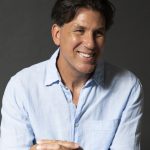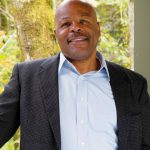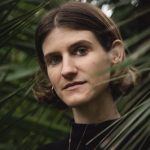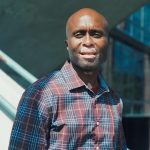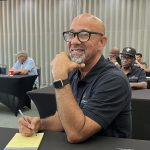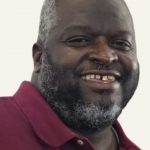The Visiting Room Project is the largest collection of video interviews with men serving life-without-parole sentences. All of these interviews were filmed in Louisiana State Penitentiary, a facility better known as Angola Prison. Angola is an outlier even within a system marked by dramatic racial disparity: Named after the antebellum slave plantation whose property it repurposed, over 70 percent of the people incarcerated there are Black, and over 70 percent are serving life-without-parole sentences. In Louisiana, life without parole means life: the sentence is to die in prison, with no opportunity for parole. If Louisiana were a country, it would sentence more people per capita to this extreme punishment than any other country on Earth.
The story of the Visiting Room Project ended up containing an unexpected ray of hope. After the filmmakers had completed recording all of the interviews, elections brought to office a more liberal state governor and New Orleans’s district attorney. New Orleans’s new DA created a Civil Rights Division that recommended resentencing for a number of the men profiled in the project, and the governor commuted more than 150 life-without-parole sentences statewide. Between these two avenues, over a dozen of the men in the project have been able to come home. But recent elections have elevated a former attorney general to the governor’s office, following a campaign that centered tough-on-crime rhetoric.
Inquest and its publisher, the Institute to End Mass Incarceration (IEMI), have had an ongoing partnership with the Visiting Room Project that began when the project’s co-creator, sociologist Marcus Kondkar, wrote for Inquest about the project’s genesis. On September 28, 2023, formerly incarcerated members of the Visiting Room Project were invited by Inquest and IEMI to Harvard Law School for a daylong symposium. Throughout the day, students, community members, and local advocates came together for a series of panels and discussion with these men and the creators of the project.
The morning session saw a vibrant discussion on prison education programs and the power of education for incarcerated people. In the afternoon, Harvard Law School students moderated a panel of two formerly incarcerated “jailhouse lawyers,” Everett “Buff” Offray and the Visiting Room Project’s other co-creator, Calvin Duncan. Both had studied the law while incarcerated in Angola to help themselves and their peers pursue post-conviction relief.
In the evening, the symposium concluded with a public film screening of excerpts from the Visiting Room Project followed by a panel discussion hosted by Inquest’s coeditor-in-chief Andrew Manuel Crespo. The conversation included Duncan, Kondkar, Offray, the project’s executive director Annie Nisensen, and two additional project ambassadors who had been only recently freed: Ron Hicks, who now serves as a reentry specialist for the Louisiana Parole Project; and Daryl Waters, who works as a program associate for the Visiting Room Project.
What follows is an edited transcription of selections from this closing conversation.
Andrew Manuel Crespo: What were your hopes for this project? What did you want it to accomplish, and what are the things that have surprised you about how it has come together?
Marcus Kondkar: Most people don’t know about the changes people go through behind prison walls, because we have no access to them. One of the consequences of designing prisons to keep people in is that they keep the rest of us out, and the people in them remain an abstraction to us. If we want to understand the experiences of those we have “othered” and cast to the sidelines of society, make empathetic connections with them, and be reminded of our common humanity, we must visit with them, hear their stories, and see them as whole human beings. Calvin and I realized we had to find a way to get into the prison and get these stories out.
Calvin Duncan: The only thing the public sees is what somebody did years ago. I thought that the people on the outside were entitled to know what happens after that—how the lives of people inside of prisons actually evolve and turn out to be. I used to tell their stories all the time, but that’s just me speaking for them. I wanted the guys to have an opportunity to open up, to tell their story.
And I wanted the outside world to know what we, as a country, are doing. Martin Luther King, Jr., used to always say that if the people could see it, they’d do something about it.
Looking at these guys on the stage with me now, they were the generation after mine. I got to witness them from the time they were kids being incarcerated at sixteen or seventeen or eighteen, and then watch them all grow up supporting each other. I felt like the insight that brains continue to mature until the age of twenty-four or twenty-five was not a dry fact for me, but something I actually witnessed. And I was always hoping that the outside world would see it as well.
Crespo: Annie, you’re a filmmaker. I want you to imagine someone in the audience who is inspired by this project and wants to think about how to use this medium of documentary filmmaking in a way similar to yours. We see the finished product, but we don’t necessarily see all of the challenges you faced behind the scenes trying to figure out how to tell stories when there’s real pain in them. What are the responsibilities and challenges you have to navigate when you’re making films and want to engage people, but you also know that there is deep trauma there?
Annie Nisenson: I think from the beginning, or at least from the moment I stepped into the project, the idea of the ethics of filmmaking with incarcerated people felt extremely fraught. That said, despite how complicated and how coercive the environment of prison is, I feel extremely proud of our process.
A social practice artist that we work with recently described how we work with concentric circles. Our first circle was that we went back and screened every single interview with each person who participated in this project, where they got to sit with their interview—there were no guards in the room—with their own headphones, and watch it from beginning to end. And we asked them to tell us after: How do you feel about this? We had the same conversations with each and every person: Do you still feel OK putting this out in the world? Do you want us to make changes?
Before that, even, we worked with a lawyer to make sure that, to the best of our ability, there was nothing in the interviews that would jeopardize anyone’s future chance before a pardon board, or a parole board, or a governor’s clemency process, or anything that could provoke victim opposition.
Our first screening was with our storytellers. In fact, one of the contributors is an extraordinary baker, and he made brownies for everyone with little cartons of milk, and we had a proper film screening inside of Angola.
Thanks to all of the ambassadors and their work, this is also an ongoing set of conversations. There continue to be many occasions when people from the project are having check-ins with the folks who are still inside: Have you seen what we’ve been doing? How do you feel about it? What have you heard?
And then to add one more thing to the concentric circles, it’s really amazing to come to these very powerful institutions and screen the project. But it’s equally important to us to return these interviews to families, so we have a closing-the-loop step where we take the interviews back to the families of the interview subjects.
None of this removes the power imbalance between maker and participant—power remains unequal in so many ways. But it’s a process that I feel really proud about.
Crespo: I’m curious if, in watching these videos, there are things either that surprise you or things you learn from watching these people whom you’ve spent so much time with. Are there things they say that either cast aspects of the experience in a new light or things that just especially resonate?
Daryl Waters: I think after watching the various interviews, the blanks were filled in. Some of the guys were weird to me, to be honest, until I watched the interviews and then I understood. Because we had to live around each other for decades not understanding the unresolved anger, not understanding some of the behaviors around us. But the interviews helped us because guys were able to tell their backstories. And I started having all these aha moments. He was depressed because he was missing his twin daughters, for example.
I also become very sad when I listen to or watch the interviews. I know these guys, so it is difficult to know that they’re still inside. I’m in a lot of pain. But I know it’s necessary. I have to endure this pain in order to be better informed to be able to help the guys so hopefully, one day, they gain their freedom as well.
Ron Hicks: I’m only six months from having been released from prison after thirty-three years. It’s bittersweet. I’m happy I’m home, but I feel like I have to get involved—and I’ve been involved—in trying to help find some kind of way for all of them to come home.
There are thousands of stories like mine. From the moment I arrived in Angola, every petition, everything that I tried to do, I never had a favorable ruling. Not one granted written petition, not a continuation. Until the very end, when I was finally able to be released. And I need people like Calvin and Buff who kept me going, even as they didn’t offer any false reassurances about my chances.
There are so many guys who are still back there in Angola and in prisons across the country who sit behind prison walls and have nobody to advocate for them. We have to get involved. You see something, you do something about what you see, to relieve people of the suffering that they’re experiencing in their lives at that moment.
Audience Question: We heard a story earlier in the day about the warden of Angola telling people that something like 85 percent of the prison’s residents were going to die there. Now being out, when you look back on moments like that, what are your thoughts about things like life and your purpose?
Duncan: While in prison, I realized that our United States Supreme Court has said it’s OK to execute innocent people and keep them in prison for the rest of their lives. In working on a lot of people’s cases, I realized that we have enacted so many laws to make sure that people in prison stay in prison, even if they’re innocent. I always say when the God of hope left me, I realized that I wasn’t never supposed to get out of prison. The odds were so against me.
So I feel like I got out for a reason, and it wasn’t to have fun. Because I had witnessed all of these rules apply to a group of people who can’t defend themselves. People who have limited education, no money, and all of these rules are targeted at them. Us. Poor people. God let me get out. Now I’m spending the rest of my life trying to help the people who are left in that prison.
Now I’m just a jailhouse lawyer on the outside, running errands, trying to get records, making sure people’s cases can get updated legal material. The laws on our books are so diabolical. In Louisiana, you’re not entitled to a lawyer after sentencing. The only people who can help you then are the jailhouse lawyers. You know, many of us, we arrive in prison with about a ninth-grade education. And we have trauma that we have to deal with ourselves.
Really our function as jailhouse lawyers is to make sure that people don’t give up hope. Especially when we ourselves get out. That’s our job now. To make sure that people don’t give up hope—and to try to educate “civilized” people on the outside who are willing to listen about how we have created a system that tramples upon weak people. Everybody I ever met who had a life sentence or was on death row were people who didn’t have any money and who had been trampled—really beat down even before prison.
I don’t think we get to sit by and pretend that we didn’t witness none of that stuff. We don’t get to witness this injustice and get out and say, I made it and now I’m going to forget about it.
Don’t get me wrong, going back to prison is traumatizing. People ask me: Calvin, why do you go back to that prison? I answer: What am I supposed to do? Then sometimes I get on my soapbox and I add, Well, Moses went back to Egypt!
Other people can pretend like it doesn’t exist and other people can pretend that this shit ain’t never gonna happen to them. But we can’t, because guess what? I don’t think Buff has no money. I’m still broke as hell. All this stuff could still happen to us all over again—we could relive this whole nightmare.
So yes, we go back to prison, and when we go back, we are traumatized. When we wake up in the morning, when we see police cars, every time we leave our houses, we’re traumatized. When we come here, and relive all that trauma. But we have to do it. We don’t have the luxury to sit and do nothing. For us to do that would be a tragedy. That would be the biggest crime of all.
Everett “Buff” Offray: God told me to feed the people, so it’s lunchtime. That’s what I’m doing. I’m feeding the people. And this is part of feeding the people right here. If I can make you aware of what’s going on in hell—and not just the hell of Angola, but any hell inside of the United States—I’m doing my job of feeding the people. I can motivate you to move forward.
When God says feed the people, that’s what that means to me. You know, if you have something to give to people, give it to them. Don’t hold it back. God blessed you with these abilities for a reason. You’re going to law school, you’re going to be a lawyer? Who are you going to feed? Are you doing it to feed yourself? You’re going to get fat feeding yourself.
Looking back on my time in prison as a jailhouse lawyer, I feel like I did what I was supposed to do. And right now, I’m still going to do what I got to do. Every day, every time, every chance I get, I’m going to tell somebody about my friends inside of prison. I’m going to tell you about anything that I can tell you about. In working with Tulane’s Women’s Prison Project, I learned the reality of domestic abuse. I be talking about that all the time now. I be telling people, Look, boy, it’s real, it’s more real than what you thought.
I used to think I didn’t need nobody. That’s what I thought. And I was dead wrong. So now when God says feed the people, I ain’t got no doubt. It’s lunchtime.
Image: Vladyslav Tobolenko/Unsplash

